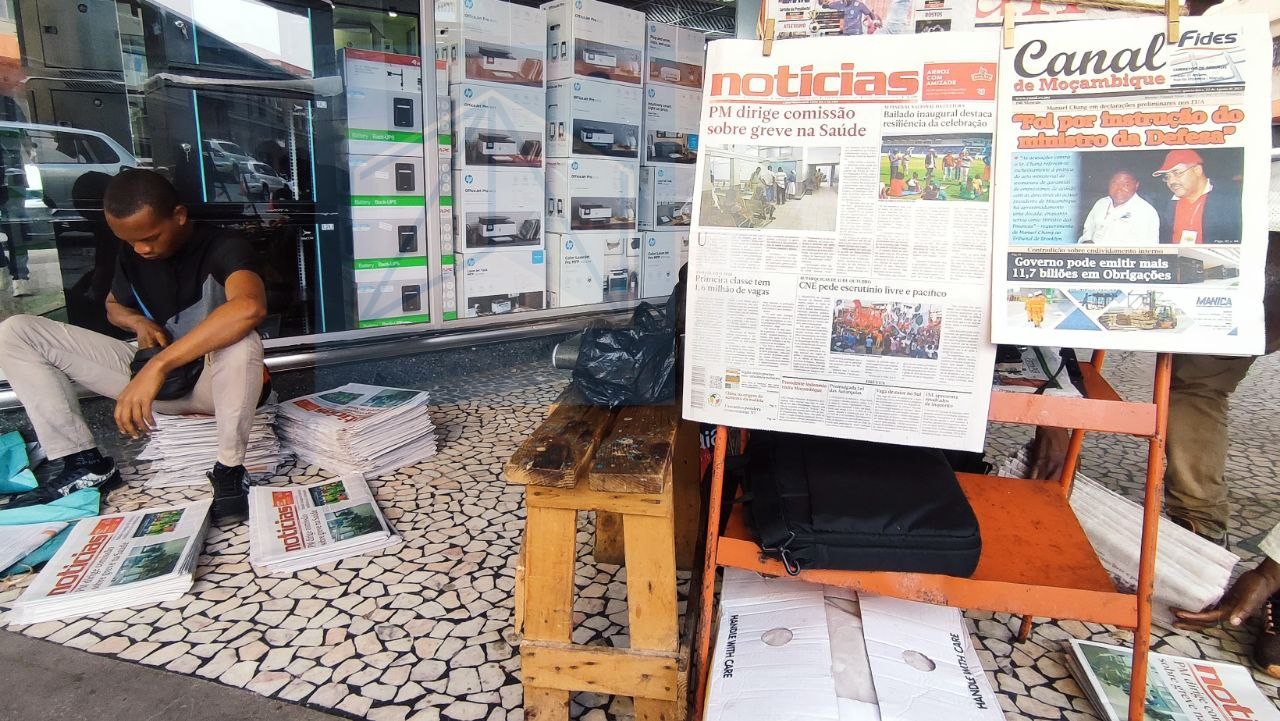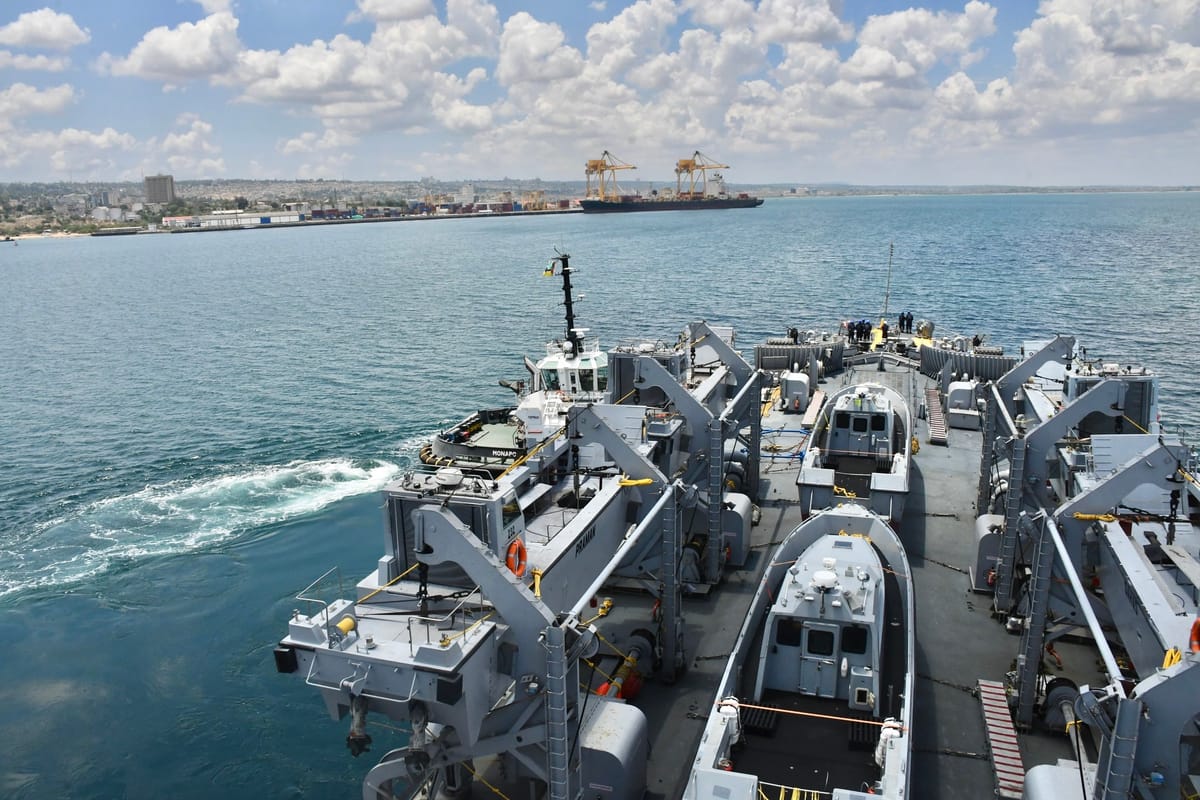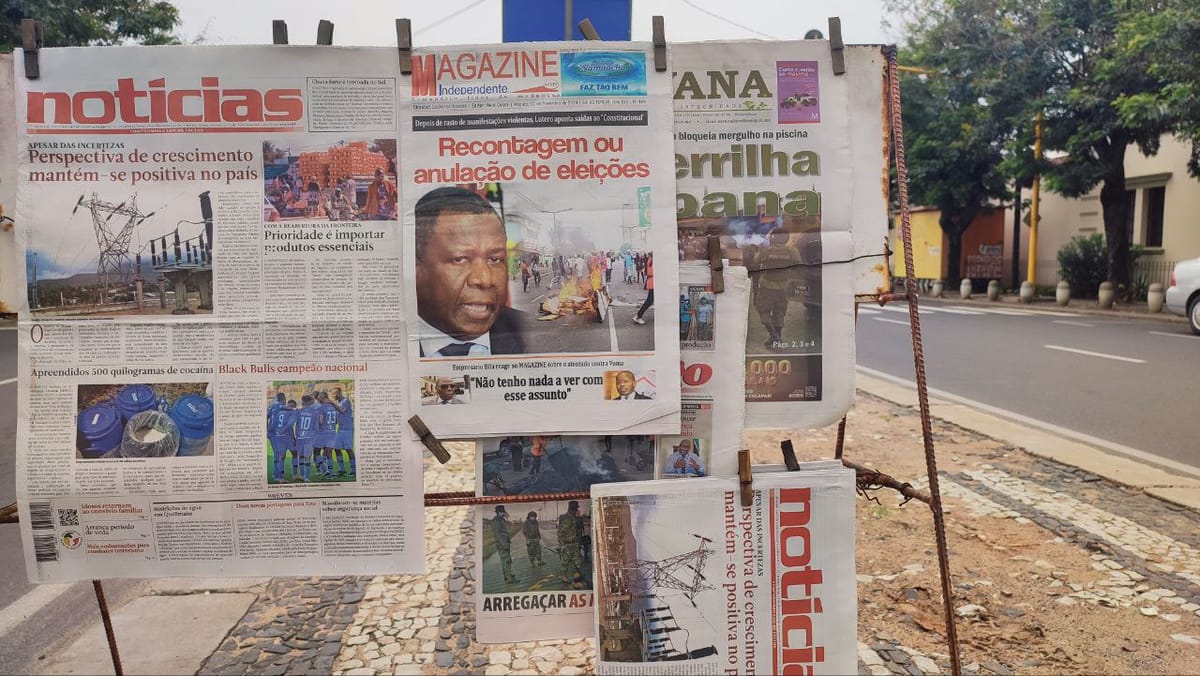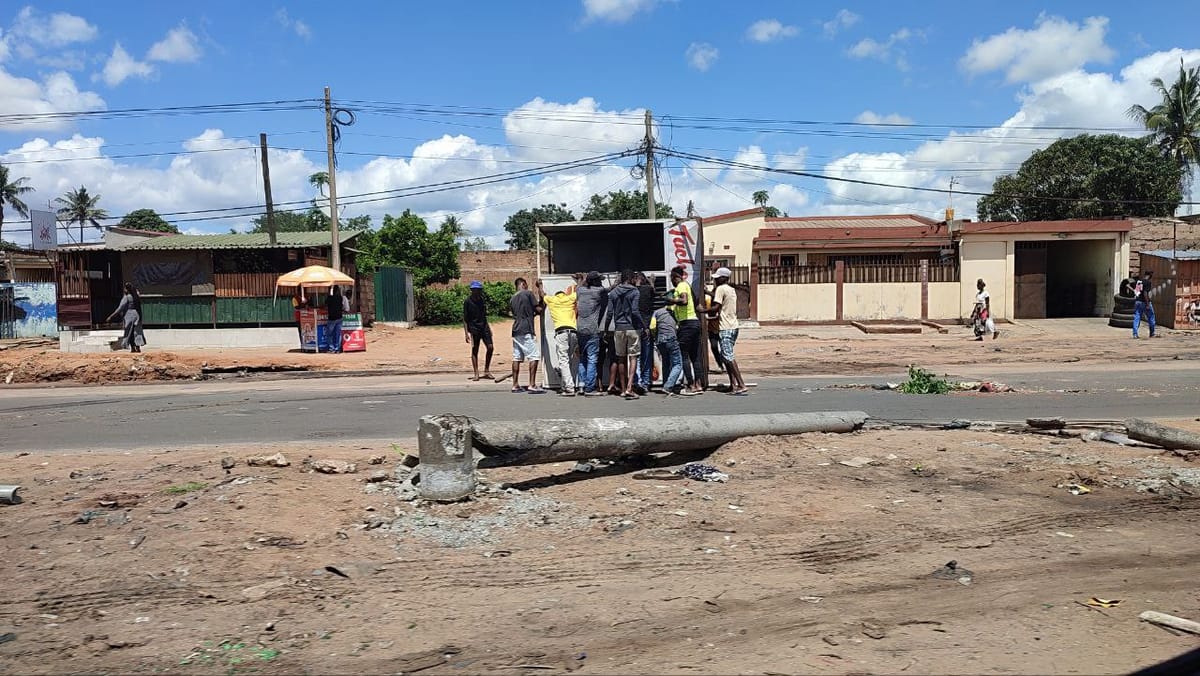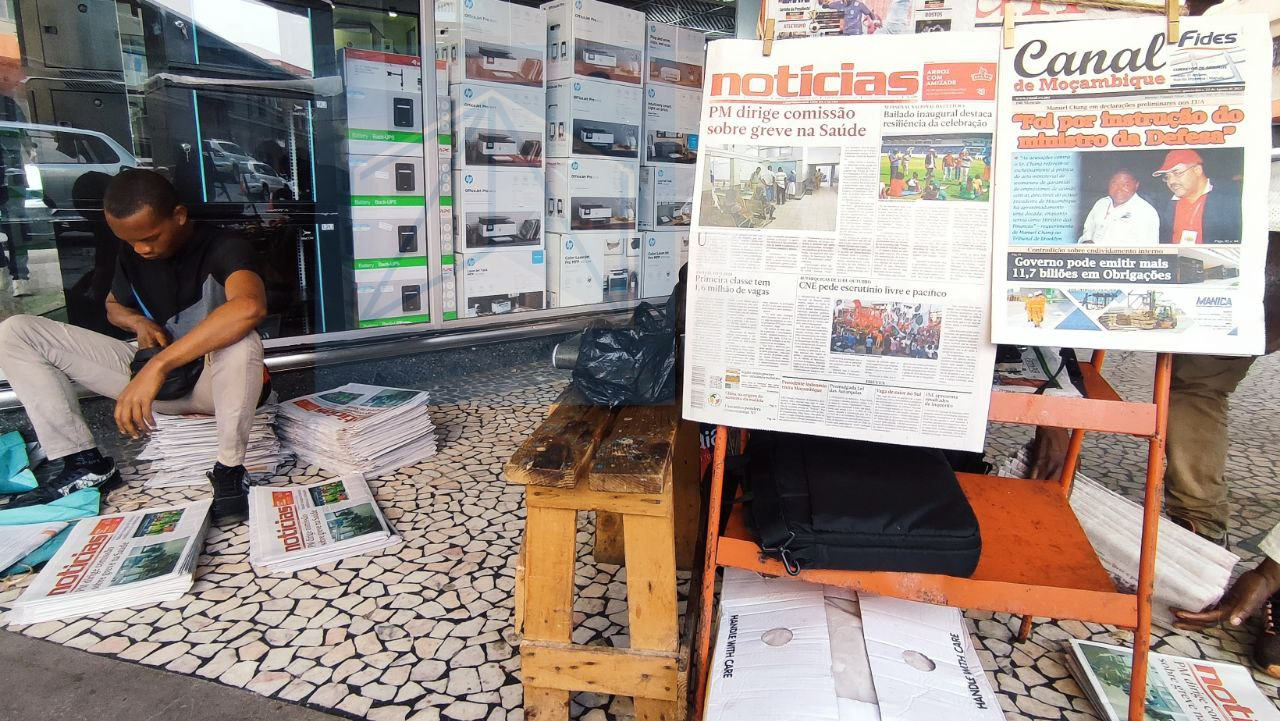Hello, and welcome to Zitamar’s free weekly newsletter, on the first day of the fourth phase of what opposition presidential contender Venâncio Mondlane is calling ‘the pots and pans revolution’.
The last week saw a vicious cycle of violence between police and protesters, that saw the death toll from the post-election turmoil rise daily. Indeed, Mondlane has now called for three days’ mourning for the victims of the violence.
Sign up for Zitamar's daily briefing email here
Follow Zitamar on our Telegram Channel, on Bluesky, on WhatsApp, Twitter / X, Facebook, and Linkedin
They include seven young people mowed down by an unknown driver of a 4x4 vehicle in Maputo. They also include the head of the district elections commission in Inhassunge, near Quelimane in Zambezia, who was killed by a furious mob.
The protests are also hitting the Mozambican economy, with the cost being felt by ordinary people. Mondlane’s challenge is to keep his supporters motivated to keep up the protests despite the hardship — and despite his absence from the country, where he is now a wanted man.
Meanwhile, the government’s response has been to compare demonstrators to terrorists, and to say the demonstrations are banned. President Nyusi addressed the nation yesterday, and proposed dialogue between the presidential candidates, but his intervention was widely seen as too little, too late. In the minds of many Mozambicans, Nyusi is no longer president. Venâncio is.
Zitamar News is hiring!
Zitamar News is seeking an economist to join our editorial team in Mozambique as Economics and Data Journalist.
The successful applicant will be a qualified economist, or an economics student with a good understanding of economics and finance. They will also be familiar with sources of data on the Mozambican economy, published by the INE, Bank of Mozambique, government ministries, and other entities including multilateral institutions.
The ideal candidate would also have experience in producing data visualisations and graphics; have a good level of English; and have the ability to explain economic developments to a lay audience.
Click here for more details, and please share with your networks to help us find the right person.
Week in Review
Monday
After at least 34 people were killed in electoral violence since the contested October 24 election, opposition candidate Venâncio Mondlane announced the “derradeira” (ultimate) and “most painful” fourth phase of demonstrations. He emphasized the gravity of this phase, stating that it will have a profound impact on the national economy. Protests are set for Wednesday to Friday at borders, harbors, and provincial capitals, he stated during his Facebook live stream.
The protests have already disrupted businesses, schools, and markets, caused food shortages—exacerbated by the closure of the Ressano Garcia border—and led to violent clashes with police, resulting in deaths and injuries. The unrest has primarily hurt ordinary citizens.
The regime of ruling party Frelimo may have been politically inept in responding to the situation, but it has been adept as usual in using the levers of power to protect itself, imposing internet restrictions and limiting protests by using the police to block the streets. Frelimo has no hesitation in trampling on human rights, including the right to life, to stay put.
Tuesday
Venâncio Mondlane has denied accusations from the ruling party Frelimo that he is attempting a “coup” against the Mozambican state. He insists that his call for protests is about pressuring electoral authorities to address the alleged fraud in last month's election, in which he claims he won.
Mondlane has also shared videos of the protests in Sri Lanka that led to the president fleeing the country two years ago, and he has urged the security forces not to act unlawfully, with the implication that the government might give them unlawful orders to suppress demonstrations.
Mondlane seems to want to exploit this ambiguity to encourage his supporters while trying to minimise excuses to arrest him for plotting to overthrow the state.
Wednesday
As the so-called fourth phase of demonstrations called for by opposition presidential candidate Venâncio Mondlane began today, the media were reporting condemnation of the violence from police chief Bernardino Rafael and an announcement from the Attorney-General's Office that over 200 criminal cases have been opened in connection with the protests, in addition to civil cases in which the government is seeking damages.
That these people are following a political agenda set by the government is nothing new, of course. And it fits with the government’s approach to date of not addressing the politics behind the protests, and treating them simply as a public order problem. But it is remarkable that the justice system only feels able to condemn the demonstrators. It does not feel able to condemn or investigate the police officers who have reportedly killed over 30 people, some of whom were apparently not even protesting.
The Attorney-General’s Office is not usually very communicative. It has not been able to say recently what prosecutions if any are being launched against kidnapping gangs. Nor has it or the police announced any investigation, let alone prosecution, of the killings of opposition figures Elvino Dias and Paulo Guambe last month.
In the past, political assassinations like that of journalist Carlos Cardoso were only investigated after the government came under pressure from foreign entities to do so. It is to be hoped that donor countries and agencies will remember their calls to investigate the killings of Dias and Guambe, and apply pressure now. Otherwise, law enforcement will continue to allow the government to ignore the law.
Thursday
Elections official beaten to death as protesters turn on police in Zambézia (CanalMoz, Integrity)
A local elections official in Zambézia province has been beaten to death by locals who went on the rampage after police shot at demonstrators protesting the election results. Luís Joaquim Salimo, president of the district elections commission in Inhassunge district, was killed during a chase of local authority figures. According to newssheet Canalmoz, the locals also set fire to the district police command and a police vehicle, opening police cells and freeing all the prisoners, most of them protesters. The district police commander, the district administrator, and the local first secretary of ruling party Frelimo all fled the area, according to Canalmoz. Yesterday afternoon, police in the city of Quelimane fired tear gas at followers of local mayor Manuel de Araújo when they tried to hold their usual procession welcoming his arrival, resulting in riots.
Inhassunge is a small town across the Bons Sinais river from Quelimane, also known as bay of Quelimane. Traditionally demonstrations in Quelimane and Beira have been organised without any violent incident. However, this changed when police tried to stop de Araújo’s supporters marching from the airport. The mayor forced the march and he ended up being gassed by the police along with his wife. Addressing a small crowd at the town hall today, a defiant de Araújo promised to continue to organise peaceful marches in Quelimane against the election results.
Friday
Demonstrations are banned in Mozambique, says interior minister (O País, Lusa, Mediafax)
The post-election demonstrations have turned into subversion and terrorism because they are terrorising people and children, according to interior minister Pascoal Ronda. Some of the demonstrators are children who are being used by adults, and young people under the effects of drugs such as alcohol and cannabis, he said. Protests are therefore banned in the country, he told journalists in a press conference yesterday. Ronda claimed that the measures being taken by police are in proportion to the force being used by demonstrators. Opposition party Renamo yesterday promised to bring prosecutions against all the police officers involved in what it called a “massacre against the people”.
Across the country, groups of Mozambicans have continued to demonstrate for the third consecutive week against electoral fraud and the controversial results announced by the National Elections Commission.



